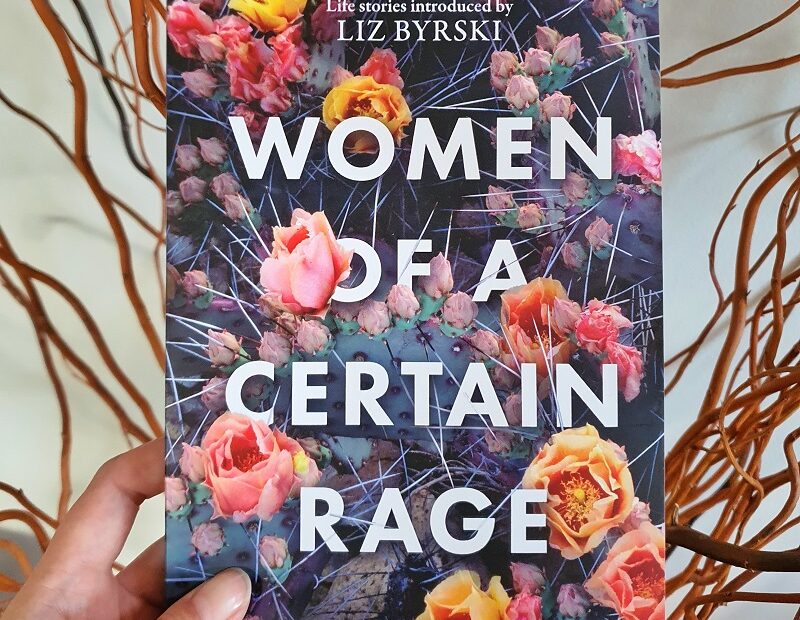Anthology Introduced by Liz Byrski
Authors: Anne Aly, Nadine Browne, Nandi Chinna, Claire G. Coleman, Carrie Cox, Eva Cox, Sarah Drummond, Carly Findlay, Goldie Goldbloom, Rafeif Ismail, Margot Kingston, Jay Martin, Meg McKinley, Olivia Muscat, Mihaela Nicolescu, Renee Pittitt-Schipp, Fiona Stanley, Victoria Midwinter Pitt, Jane Underwood, Julienne van Loon
This anthology is a guide to understanding and embodying a plethora of rage. I have struggled to make peace with anger and the ways in which I have expressed it and endured its expression by others. But rage has become increasingly familiar to me.
Whether you are certain of what rage feels like and how it manifests in your life, anyone who has felt silenced, pushed to the margins, erased, will likely feel validation in reading this. The rage that is developed in response to aggression and violence, the rage that surreptitiously manifests into existence, the rage that fuels, are considered in this collection of reflections, meditations, and highly personal stories. There are beautiful descriptions of the weight, shape, and heaviness of rage as well as the power, effect, and endurance of it.
The authors in this collection suggest potential meanings and effects through their diverse perspectives on rage. Sadly, I do not see anyone like me visibly represented in the line-up: of Asian origin. While this is a relatively minor drawback, it seems a missed opportunity given the considerable rise in anti-Asian sentiment and violence inflamed by irresponsible COVID narratives. I also cringe a little at how often Aboriginal and Torres Strait Islander people are referred to as “our” or “Australian” given how often I’ve been privy to conversations about how this framing normalises colonialist violence, causing distress and anger.
I was surprised by the way in which each piece wound into my core, requiring me to put the engrossing book down at the conclusion of each chapter. As much as I wanted to read on, each piece provoked feelings and thoughts that I felt warranted more time and reflection. I found it an almost exhausting read in a valuable way. It was important for me to process the reflections of my own experiences, rage, and that of others.
In a time when violence, systemic marginalisations, and invisibilisation are thrust onto the bodies and lives of women, especially First Nations women, Black women, and women of colour in Australia, this anthology feels timely and expository. The inherent traumas and related concerns of racism, xenophobia, ableism, classism, the global climate crisis are explored, amongst other themes. The variety in approaches and writing styles made it feel like an invitational journey leading to unexpected nooks and crannies.

I’m struck by how much I learned from reading this. I found some stories hard to fathom and digest, sometimes detailing brutality and harm. But they each come together to form a cohesive body of work that reveals how rage might be understandable and, while gross injustices persist, absolutely necessary. Ultimately, I found it a lamentation of how much we are expected to endure, also a spotlight upon injustices from which some benefit, and a recipe for how rage might sustain us.
About the Book
Published: February 2021
ISBN: 9781760990060
Pages: 232
Publisher: Fremantle Press
